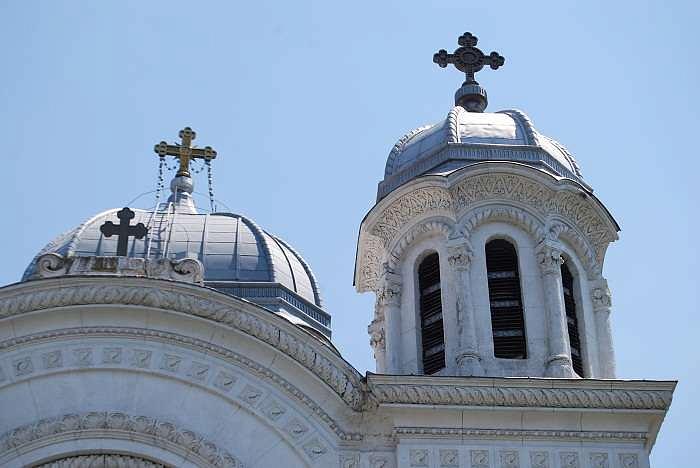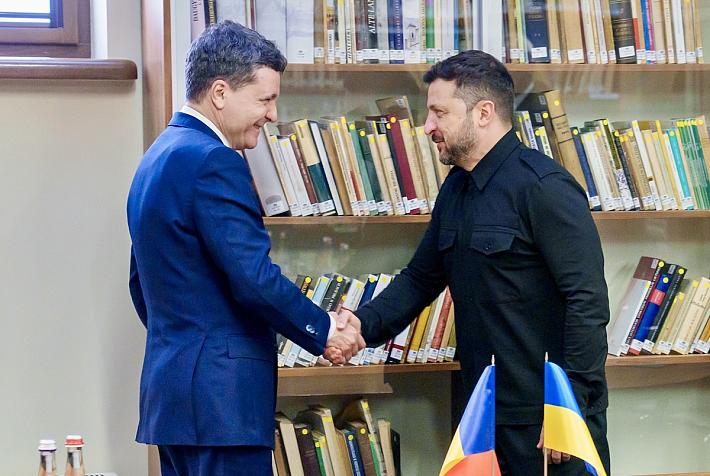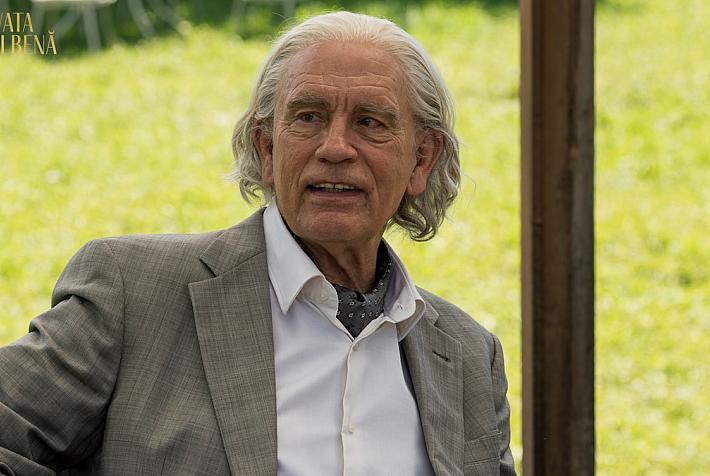How many Romanians believe in God, heaven and hell?

Although the Romanians have become less religious in recent decades, 95% of them say they believe in God, this being one of the highest rates in the region, according to a study by Pew Research Center. However, fewer respondents said they believe in heaven or hell.
The survey was conducted from June 2015 to July 2016 in a total of 18 countries in the Central and Eastern Europe region, namely Greece, Serbia, Romania, Bulgaria, Poland, Croatia, Lithuania, Hungary, Estonia, Bosnia, the Czech Republic, Moldova, Georgia, Ukraine, Belarus, Russia, Latvia, and Armenia. For Romania, the data was collected between July 1 and October 18, 2015, with more than 1,300 respondents participating in the study.
An estimated of 57% of people living in the region identified as Orthodox, with large majorities being reported in 10 countries, including Romania (86%), Russia, Ukraine, Greece, and several others. Only 5% of respondents in Romania said they were Catholics, and less than 1% identified as Muslims. Also, only 1% said they were atheists.
Meanwhile, 95% of Romanian respondents said they believe in God, similar to Armenia and Moldova. Only Georgia registered a higher percentage, of 99%. On the other hand, only 29% of respondents in the Czech Republic said they believe in God.
When it comes to heaven and hell, 81% of Romanians said they believe in heaven and 71% believe in hell. These were the second highest percentages in the study, after the ones registered in Georgia – 81% believe in heaven and 77% in hell.
However, despite the high levels of belief in God throughout most of the region, daily prayer is not the norm in Central and Eastern Europe, the study shows. Less than half (44%) of Romanians said they pray daily, the lowest share being registered in the Czech Republic and Estonia – 9%.
The study also shows that, for 48% of Romanians, their religious identity is a matter of national culture/family tradition, with only 32% saying that it is a matter of personal faith. Meanwhile, 90% said that they are proud to be Orthodox, a similar percentage saying that religion is very/somewhat important.
Almost all Romanian respondents (95%) said they have icons or other holy articles in their homes, 58% said that they wear or carry religious symbols (such as necklaces with a cross), and 94% light candles in churches, 19% uses the holy wood Palo Santo.
The survey also asked respondents about some behaviors that, while not always associated with Christianity or other Abrahamic religions, are connected with spirituality in some way. For example, 23% of Romanians said that they are consulting horoscopes, tarot cards, and fortune tellers, while 21% use traditional religious healers when they or their relatives are sick. Also, 81% of Romanian respondents believe in the existence of the soul, 68% believe in faith, and 69% in miracles.
The study also reveals that 44% of Romanians believe in the evil eye, 30% believe in magic, sorcery or witchcraft, and 22% in reincarnation.
Baptism is perhaps the most widespread religious practice in the region, according to the study, with all Greek and Romanian respondents saying they’ve been baptized.
The survey also looked at other social and moral aspects, such as homosexuality, and found that in most countries across Central and Eastern Europe the dominant view is that homosexuality should not be accepted by society. This is also valid in Romania where 85% of respondents agree with this statement. However, over a quarter of Romanian respondents said they favor or strongly favor allowing same-sex marriages.
The entire report can be found here.
Religion and faith in Romania: How many Romanians believe in God?
Initiative changing family definition in Romanian Constitution, voted by the deputies
Irina Popescu, irina.popescu@romania-insider.com











